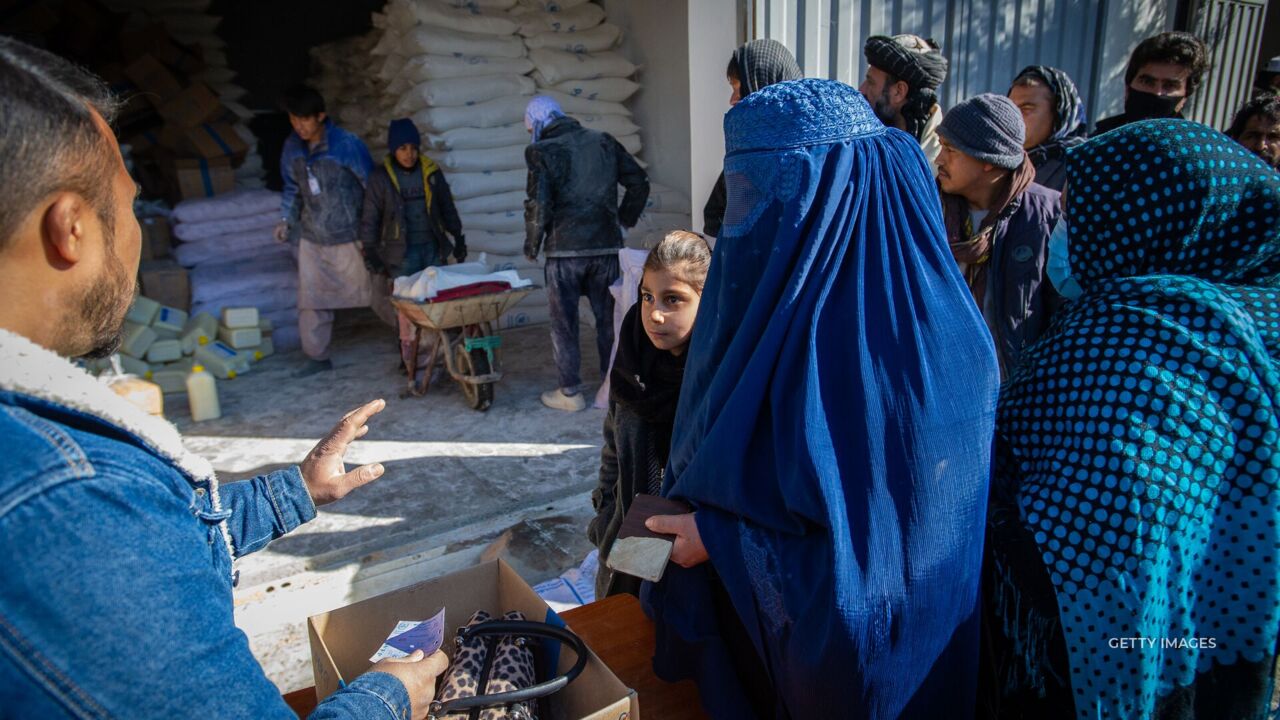
THERE’S A HUMANITARIAN CRISIS IN AFGHANISTAN, AND WESTERN COUNTRIES ARE RELUCTANT TO DO MUCH ABOUT IT.
A NEW REPORT TO THE U.N. SECURITY COUNCIL SHOWS AFTER THE WITHDRAWAL OF U.S. AND NATO TROOPS, AND THE TALIBAN’S SUBSEQUENT RETURN TO POWER, THE INSURGENT GROUP TURNED GOVERNING BODY IS STRUGGLING TO FEED AFGHANIS OR KEEP THEM SAFE.
UNEMPLOYMENT IS RAMPANT. THOUSANDS WAIT IN DAILY FOOD LINES, BUT STARVATION IS A REAL POSSIBILITY FOR MILLIONS.
WESTERN NATIONS DON’T WANT TO SEND HELP, BECAUSE THEY DON’T WANT TO BE SEEN ENGAGING WITH A REGIME THAT TOOK POWER BY FORCE AND IS OPPRESSIVE TOWARDS WOMEN
THE TALIBAN IS ALSO FIGHTING THE ISLAMIC STATE AND OTHER EXTREMIST GROUPS.
TO CONSOLIDATE CONTROL IN THE COUNTRY, THE TALIBAN IS KEEPING CLOSE TIES WITH AL-QAIDA, THE JIHADIST GROUP BEHIND 9/11 TERROR ATTACKS.
BUT DON’T WORRY, YET. THE U.N. REPORT SAYS NEITHER THE ISLAMIC STATE NOR AL-QAIDA WILL BE ABLE TO LAUNCH AN INTERNATIONAL ATTACK UNTIL AT LEAST NEXT YEAR.






